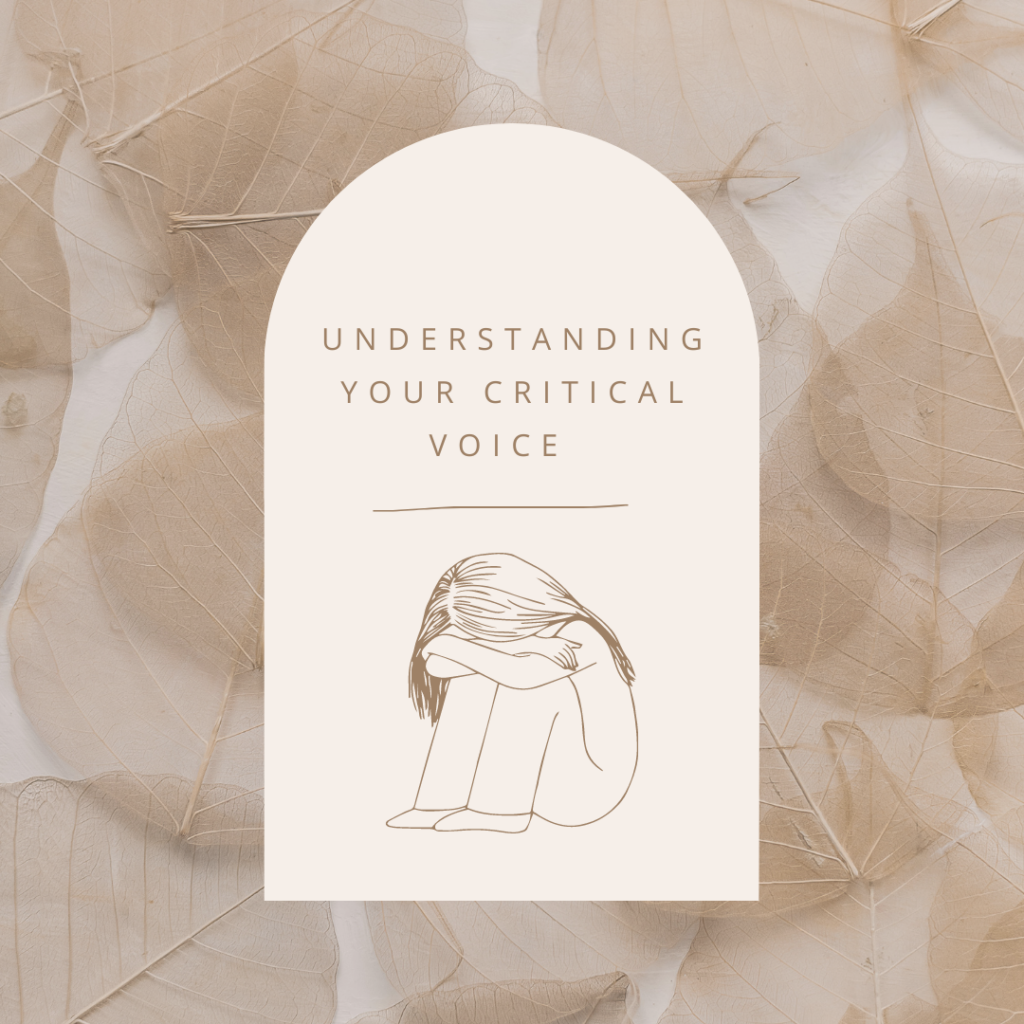What is the Critical Voice?
The critical voice has many names. You may have heard it referred to as your inner critic, judge, saboteur or superego. It can be summed up as an internal voice that is automatically negative, often characterised by blaming, shaming and harsh judgement. The tone of your critical voice usually fits these traits as well. It is never kind or understanding and it always thinks the worst of you.
The Punitive Critic
In my practice, I tend to come across two main types of critical voices. The first is what we call a punitive critic or internal bully. The messages from a punitive critic might include:
- You are pathetic.
- You’re such a bad person.
- You don’t deserve good things.
- You deserve to be punished because you’re so bad.
Some of these are extreme examples, but they give you a sense of what a punitive critic sounds like.
The Demanding Critic
The second type of critical voice is the demanding critic. This is a voice that puts lots of pressure on us to be better and to do better. It’s not necessarily blaming and shaming in tone – it’s more focussed on striving and achieving. The messages from a demanding critic might include:
- You should work harder.
- You must not make a mistake or fail.
- You’re not doing as well as other people.
- You must do this perfectly.
- You shouldn’t be resting – work is more important.
It’s very common for perfectionists to have a demanding critical voice. Like perfectionism in general, this can be beneficial, encouraging people to work hard and achieve their goals. However, at some point, the pressure of these demanding messages can become too much.
Where Does Your Critical Voice Come From?
In Schema Therapy, we conceptualise the inner critic as internalised messages from our childhood. These can be messages that were outwardly said to us or the way we were made to feel about ourselves when we were younger. These messages can come from parents, caregivers, siblings, peers, teachers, babysitters – anyone that was in our lives during our early years.
The Critical Voice and Parenting
Critical voices like the ones described above can really show up when we become parents. At a time when we’re exhausted and vulnerable, there is so much pressure to get things right and ensure our babies grow and develop in the best way possible. The desire to be ‘a perfect parent’ can lead to unrealistic expectations and cause the critical voice to rear its ugly head.
For example, imagine you have been unable to breastfeed for whatever reason. Your critical voice might tell you you’ve failed as a mother because you gave up too soon. Instead, you should have persevered and put your own needs at the bottom of the pile because they’re not important. Anyone listening to these types of messages is going to feel bad about themselves.
I’ve also worked with many mothers who have blamed and shamed themselves for their traumatic birth experience, internalising it as their fault. Their critical voice might tell them they weren’t strong enough to handle contractions on their own, so they had to rely on pain relief. It might tell them they should have been stronger, saying ‘other women can do it so why can’t you?’ Again, thoughts like this can easily trigger feelings of shame, hopelessness, embarrassment and even anger and rage directed at the self.
How to Silence Your Critical Voice
Compassion is the antidote to criticism, so when it comes to silencing your inner critic, learning to show yourself compassion is one of the biggest gifts you can give yourself.
However, if you have a very harsh, loud, deeply ingrained inner critic, the journey to self-compassion may take longer. People who have experienced neglect or abuse as a child usually fall into this group. Your belief system and everything you understand about yourself is based on what your critical voice has always told you. It’s going to take time and lots of work to unravel yourself from this and start believing you deserve self-compassion.
Unlike people who had self-compassion modelled to them by their caregivers in childhood, you may not have had the chance to develop an internal resource you can call upon when your critical voice shows up in adulthood. At the same time, you’re more likely to have developed a harsher inner critic, especially if your parent or caregiver actively humiliated you, told you off for being who you are or for not being who they wanted you to be. People in this group are more likely to need therapy to help them learn self-compassion.
Find Out More
Do you relate to the examples described above? If you need more support to manage your critical voice and you’re interested in working with me, you can book a free consultation here. I also share lots of tips and advice via Instagram.
Useful Links
How Self-Compassion Can Help You Parent
Free Guide to Learning to Love Yourself
